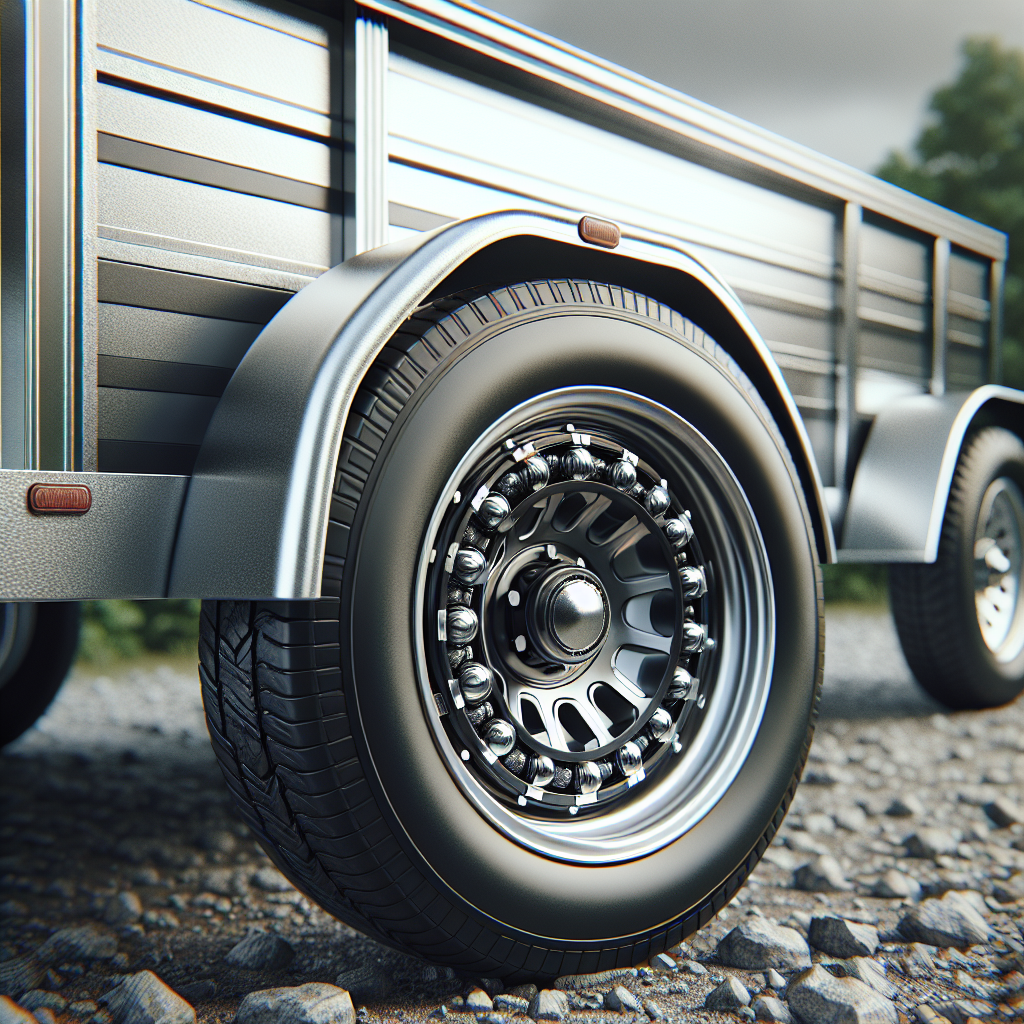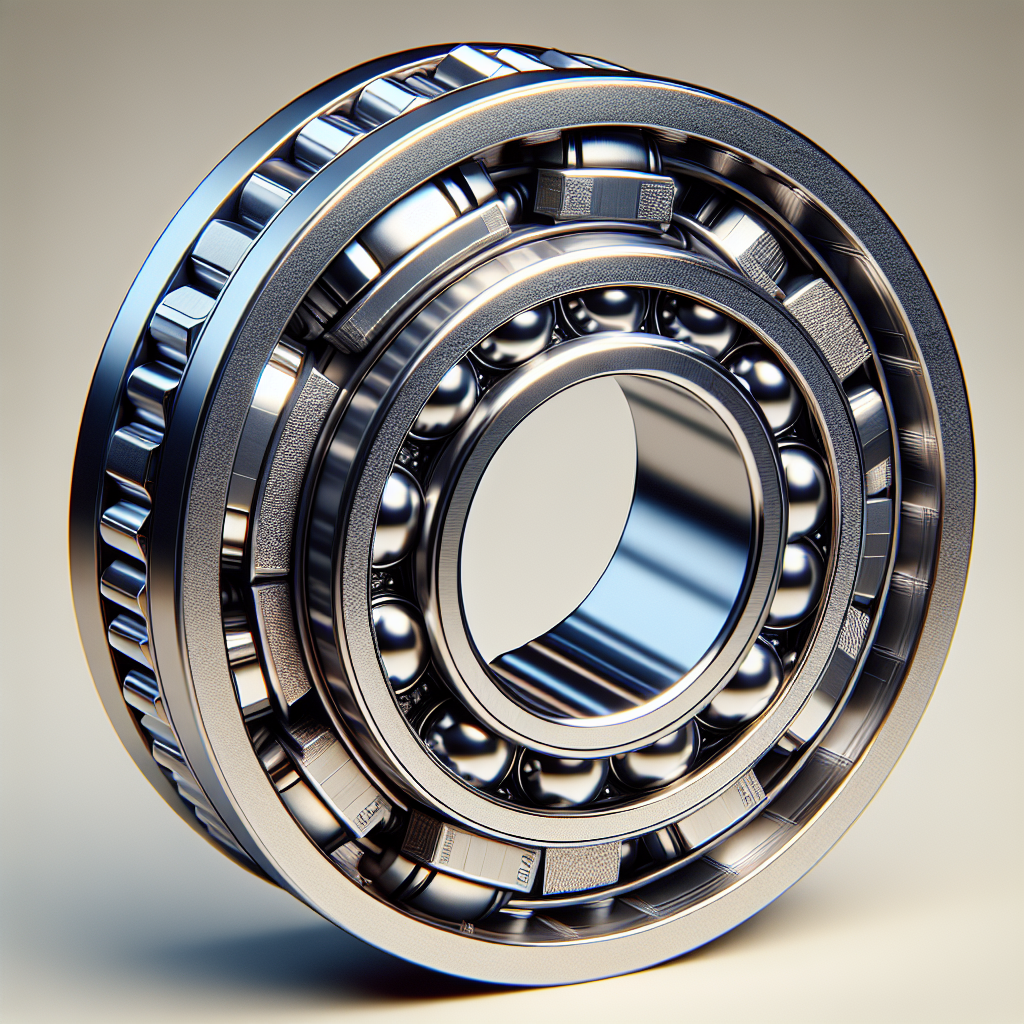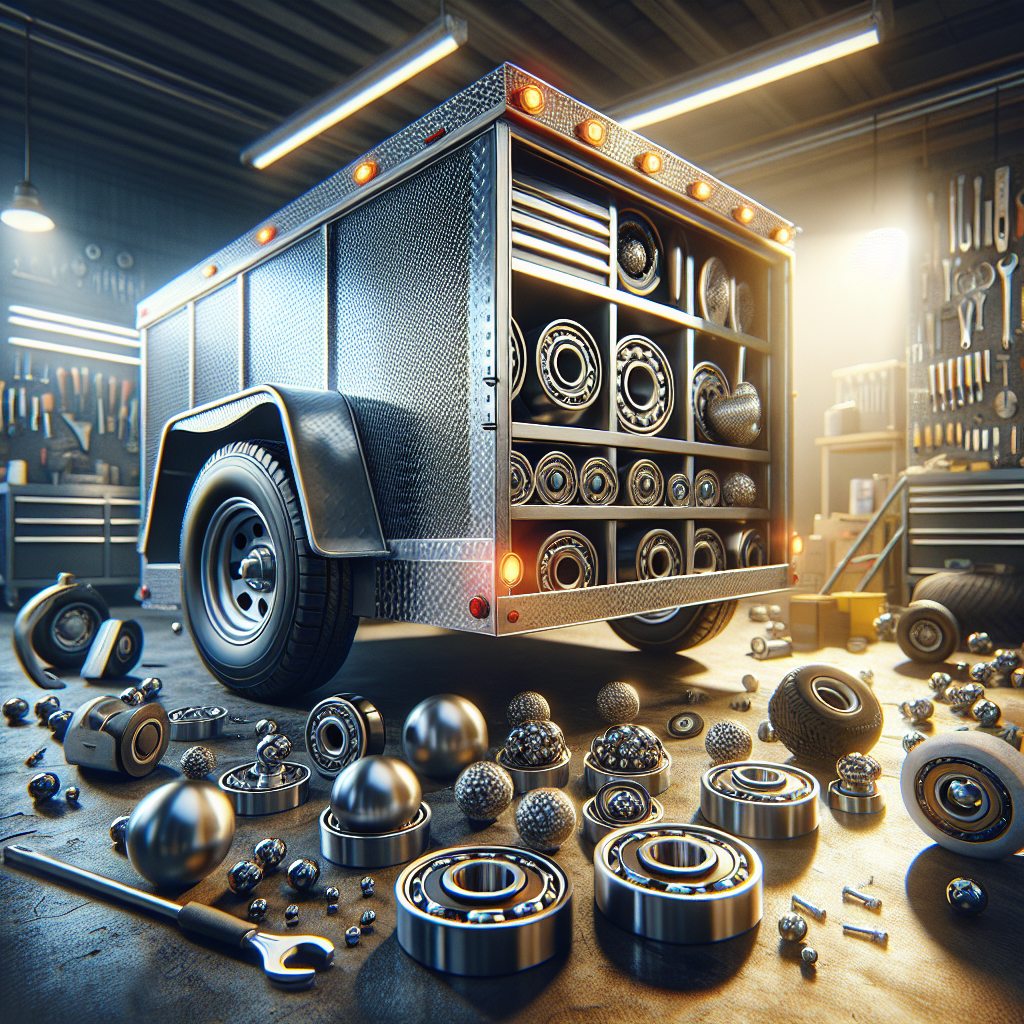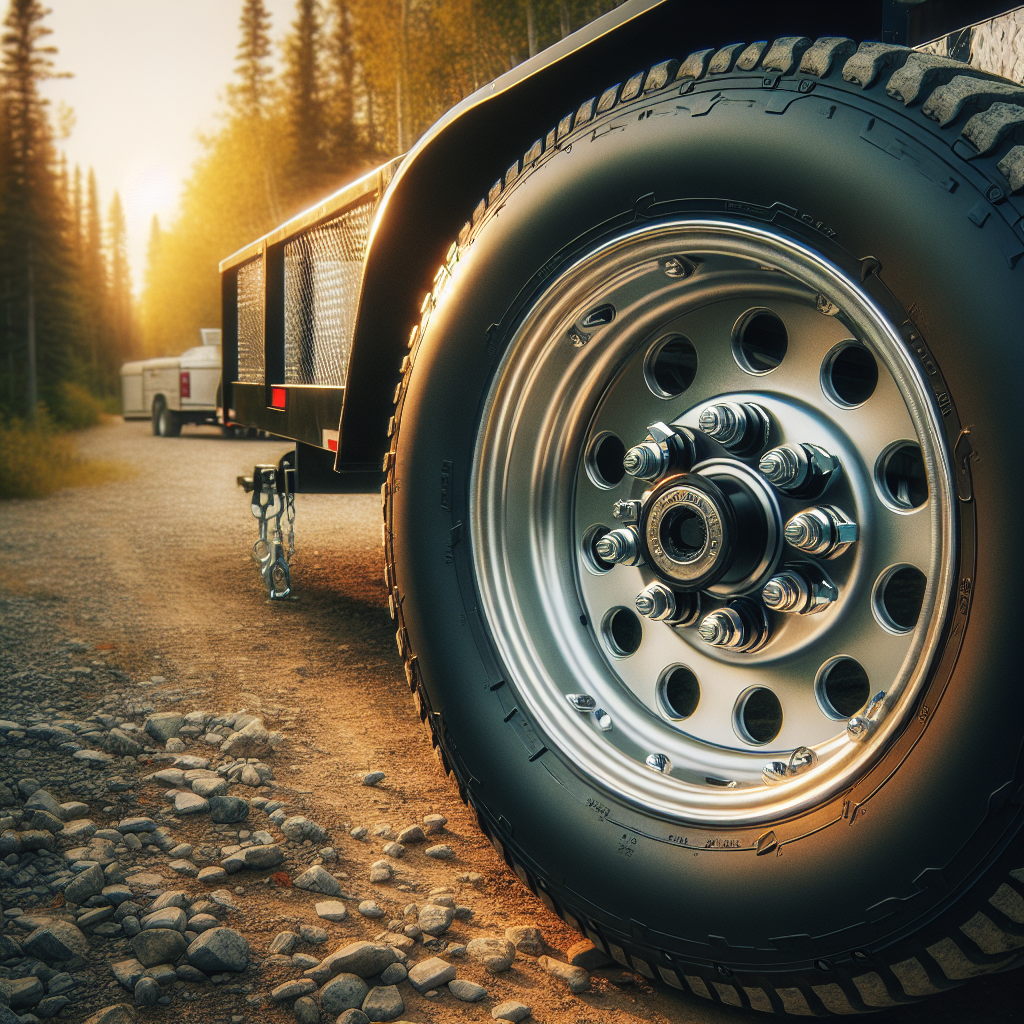

When it comes to towing safely, understanding the importance of utility trailer wheel bearings cannot be overstated. These small yet crucial components play a significant role in ensuring your trailer operates smoothly and efficiently. Wheel bearings are designed to support the weight of the trailer while allowing the wheels to rotate freely, which is essential for safe towing.
Here are a few reasons why maintaining your trailer's wheel bearings is vital:
- Preventing Wear and Tear: Regular checks help identify any signs of wear or damage, allowing you to address issues before they lead to costly repairs.
- Enhancing Safety: Faulty wheel bearings can result in wheel lock-up or detachment, posing a serious hazard on the road. Keeping them in good condition ensures safer towing experiences.
- Improving Performance: Well-maintained wheel bearings reduce friction, improving your trailer's overall performance and fuel efficiency.
By regularly inspecting and maintaining your utility trailer wheel bearings, you can enhance the longevity of your trailer and ensure it remains roadworthy. Tow with peace of mind, knowing that trailerwatchdog is standing guard. For more information on monitoring your trailer's health, visit trailerwatchdog.com.
Signs of Worn or Damaged Wheel Bearings

Recognizing the signs of worn or damaged wheel bearings is crucial for maintaining your utility trailer's safety and performance. Ignoring these signs can lead to catastrophic failures while on the road. Here are some common indicators that your wheel bearings may need attention:
- Unusual Noises: If you hear a grinding, whining, or rumbling sound coming from the wheels while driving, it may indicate that the bearings are worn out or damaged.
- Excessive Heat: Overheating wheels can be a significant signal that wheel bearings are failing. If you notice that the wheel hub is unusually hot to the touch after a short drive, it's time to investigate further.
- Play in the Wheel: A loose or wobbly wheel can indicate that the bearings are not properly supporting the wheel. This can be checked by lifting the trailer and shaking the wheel; any noticeable play is a red flag.
- Uneven Tire Wear: If you observe that your tires are wearing out unevenly, this could be caused by faulty wheel bearings that are affecting the alignment and balance of the trailer.
Regularly monitoring your trailer's performance and being aware of these signs can save you from more significant issues down the road. If you suspect any bearing problems, it's essential to conduct a thorough inspection or consult a professional.
Step-by-Step Guide to Checking Wheel Bearings
To ensure the longevity and safety of your utility trailer, regularly checking the wheel bearings is essential. Follow this step-by-step guide to effectively check your wheel bearings:
- Gather Your Tools: You will need a jack, jack stands, a lug wrench, a bearing removal tool, and a clean cloth. Having these tools ready will make the process smoother.
- Lift the Trailer: Use the jack to lift the trailer off the ground, and secure it with jack stands to prevent any accidents while you work.
- Remove the Wheel: Use the lug wrench to remove the lug nuts and take off the wheel. Set it aside in a safe place.
- Inspect the Bearings: Locate the wheel bearings; they are usually housed within the hub. Check for any visible signs of wear, such as discoloration or pitting.
- Check for Smoothness: Spin the hub and listen for any unusual noises. The bearings should spin smoothly without any grinding or resistance.
- Grease the Bearings: If the bearings look good, apply a fresh layer of grease to ensure they are properly lubricated. If they are damaged, consider replacing them.
- Reassemble the Wheel: Carefully put the wheel back on and secure it with the lug nuts. Lower the trailer and tighten the lug nuts to the manufacturer's specifications.
By following these steps, you can keep your trailer's wheel bearings in optimal condition, enhancing safety and performance on the road.
Protect your trailer
Tools Needed for Wheel Bearing Inspection

Having the right tools for inspecting your utility trailer's wheel bearings is crucial for an effective and efficient process. Below is a list of essential tools you will need:
- Jack: A reliable jack is essential for lifting the trailer off the ground safely. Ensure it is rated for the weight of your trailer.
- Jack Stands: Once the trailer is lifted, jack stands provide extra safety by securing the trailer in place, preventing any accidental drops.
- Lug Wrench: This tool is necessary for removing the lug nuts from the wheel. A cross-pattern lug wrench is recommended for better leverage.
- Bearing Removal Tool: This specialized tool helps in removing the wheel bearings from the hub without causing damage.
- Grease Gun: If the bearings are still in good condition, a grease gun will help you apply fresh lubricant to ensure they operate smoothly.
- Cleaning Cloth: A clean cloth is essential for wiping away old grease, dirt, and debris from the bearings and hub.
- Flashlight: Good visibility is key when inspecting the bearings. A flashlight allows you to see into tight spaces and examine components thoroughly.
Equipping yourself with these tools not only simplifies the inspection process but also enhances safety, ensuring that you can perform the necessary checks with confidence.
Preventive Maintenance Tips for Trailer Bearings

Maintaining your trailer bearings is essential for ensuring longevity and safe towing. Implementing preventive maintenance can help you avoid costly repairs and potential failures on the road. Here are some effective tips to keep your trailer bearings in top condition:
- Regular Inspections: Schedule regular inspections of your trailer bearings, especially before long trips. Look for signs of wear, damage, or unusual noises.
- Grease the Bearings: Ensure that the wheel bearings are properly greased. This not only reduces friction but also prevents corrosion. Use high-quality bearing grease and follow the manufacturer's recommendations for frequency.
- Check for Play: After removing the wheel, check the bearings for play by wiggling the hub. Any noticeable movement can indicate a problem that needs to be addressed.
- Monitor Temperature: Excessive heat can indicate bearing failure. Consider using a trailer monitoring system that tracks axle temperature, helping you catch issues early.
- Replace When Necessary: If you notice any significant wear or damage during your inspections, replace the bearings immediately to avoid catastrophic failures.
- Keep It Clean: Regularly clean the area around the bearings. Dirt and debris can lead to premature wear and failure.
By following these preventive maintenance tips, you can ensure that your trailer bearings remain in optimal condition, providing you with peace of mind while towing.
When to Seek Professional Help for Bearings

While many trailer maintenance tasks can be performed by DIY enthusiasts, there are certain situations where seeking professional help for your trailer bearings becomes essential. Recognizing when to hand over the reins can save you time, money, and potential hazards on the road. Here are some indicators that it might be time to consult a professional:
- Unusual Noises: If you hear grinding, squealing, or clunking noises coming from your trailer wheels, it may be a sign of bearing failure or other mechanical issues.
- Excessive Heat: If you notice that the wheel hub is excessively hot to the touch, this could indicate a lack of lubrication or a failing bearing. A professional can assess the situation and take necessary action.
- Visible Damage: If you spot cracks, chips, or any visible damage to the bearing seals or components, it's crucial to have a professional inspect and replace them as needed.
- Increased Play: If you detect significant play in the wheel hub during your inspections, it’s advisable to seek assistance, as this could indicate serious issues that require expert evaluation.
- Maintenance Overdue: If it's been a while since your last professional maintenance check, it’s a good idea to schedule one, especially if you frequently use your trailer for heavy loads.
Don’t compromise your safety and that of others on the road. Tow with peace of mind, knowing that trailerwatchdog is standing guard.




